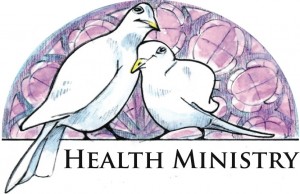Donita Robards, RN, Parish Nurse
 Pain is real, regardless of its cause. Unfortunately, pain is not always accepted or understood even from health care professionals who deal with it every day. We may all agree that surgery causes pain, but it is much harder to understand the pain of someone who has fibromyalgia or any other “unseen” pain. It is often difficult to trust in something that we cannot see or feel for ourselves.
Pain is real, regardless of its cause. Unfortunately, pain is not always accepted or understood even from health care professionals who deal with it every day. We may all agree that surgery causes pain, but it is much harder to understand the pain of someone who has fibromyalgia or any other “unseen” pain. It is often difficult to trust in something that we cannot see or feel for ourselves.
Everyone has experienced some form of pain in their lifetimes. We know pain exists, but it is still subjective to the recipient. Thus, it becomes easier to judge someone else’s pain and want sympathy for our own. Chronic pain sufferers are especially victim to this type of scorn, because their pain cannot always be visualized. Our culture wants the evidence, the proof that pain exists, as in a surgical patient when the incision is tangible.
Fibromyalgia is just one of many painful conditions that is misunderstood and sometimes misdiagnosed or undiagnosed. Many people find they have been to several doctors seeking answers, only to receive none. Furthermore, many have been told they are dealing with anxiety if the answers cannot readily be found.
The truth is that some doctors are not comfortable or knowledgeable about how to diagnose fibromyalgia. It cannot be diagnosed through lab tests or X-rays, rather, it is diagnosed by clinical evaluation of a person’s symptoms by their doctor. According to the American College of Rheumatism, a person can be diagnosed with fibromyalgia if they have a history of widespread pain for a duration of at least three months, and have pain in at least 11 or more of 18 specific tender point sites. The tender point sites are areas of the body that are painful when pressed. Most rheumatologists can perform a tender point evaluation.
Pain is a consequence of living. The cause of it should be investigated and treated appropriately. The first step towards managing pain is to set up an appointment with your doctor. There are several options to dealing with uncontrolled pain: a pain clinic, specialists, and palliative care. Your doctor should help you figure out what is most appropriate for you. Contact donita.robards [at] resthaven.org for further information.
